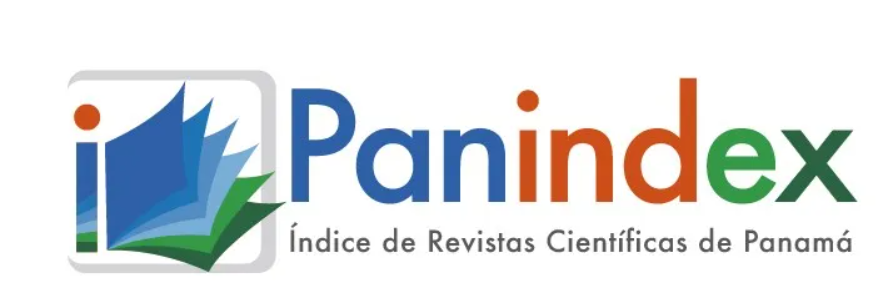The content of the publications and the links suggested in them are the sole responsibility of the authors and not of the METROPOLITAN UNIVERSITY OF EDUCATION, SCIENCE AND TECHNOLOGY (UMECIT) or CATHEDRA magazine. They are protected by international copyright laws just as the UMECIT and CATHEDRA logos, hence their reproduction is totally prohibited
This work is licensed under a Creative Commons Attribution-NonCommercial-NoDerivatives 4.0 International License.
The authors maintain the copyright and transfer the right of the first publication to the journal, with the article registered with Creative Commons Attribution-NonCommercial-NoDerivatives License, which allow others They can download the works published in this magazine and share them with other people, as long as their authorship is recognized, but they cannot be changed in any way nor can they be used commercially.
Authors are recommended to include their work in social networks such as Researchgate and institutional repositories once the article or visible fact has been published on the journal page, without forgetting to include the digital document identifier and the name of the journal.



Abstract
The Regional Agreement on Access to Information, Public Participation and Access to Justice in Environmental Matters in Latin America and the Caribbean, better known as the Escazú Agreement, adopted in Escazú, Costa Rica in 2018, aims to guarantee the implementation full and effective in Latin America and the Caribbean of the “rights of access to environmental information, public participation in environmental decision-making processes and access to justice in environmental matters as well as the creation and strengthening of capacities and cooperation”. Latin America and the Caribbean is one of the regions in the world with the fewest transparency mechanisms and access to environmental information, where more crimes against environmental defenders are recorded. It also establishes the protection of the human rights of environmental defenders, a measure that reflects the challenges they face in Latin America and the Caribbean.
Keywords
References
Conferencia de las Naciones Unidas sobre el Medio Ambiente y el Desarrollo. (1992). Declaración de Río sobre el Medio Ambiente y el Desarrollo.
Fondo de las Naciones Unidas para la Infancia (UNICEF). (2020). Acuerdo de Escazú para jóvenes. Panamá, República de Panamá.
Comisión Económica para América Latina y el Caribe (CEPAL). (2022). Informe del Primer Foro Anual sobre Defensoras y Defensores de los Derechos Humanos en Asuntos Ambientales de América Latina y el Caribe. Quito, 22 y 23 de noviembre de 2022.
Ospina Celis, D., & Botero, C. (Coords.), Barrio Lamarche, D., & de Miguel, C. (Coords.). (s.f.). El acceso a la información ambiental en América Latina y el Caribe: Síntesis de decisiones de órganos garantes y jurisprudencia seleccionada. Cátedra UNESCO Libertad de Expresión, CEPAL.
Comisión Económica para América Latina y el Caribe (CEPAL). (2015). Principio 10 de la Declaración de Río sobre el Medio Ambiente y el Desarrollo. [Infografía]. Recuperado de https://www.cepal.org/es/infografias/principio-10-la-declaracion-rio-medio-ambiente-desarrollo
Centro de Incidencia Ambiental de Panamá (CIAM). (2023, mayo 22). Comunicados. Rechazan hostigamiento a defensores ambientales y exigen al ministro de ambiente que cumpla las leyes y tratados que el país adopta bajo aplausos de la comunidad internacional. Recuperado de https://ciampanama.org/2023/05/22/hostigamiento-a-defensores-ambientales/
Ministerio de Ambiente de Panamá. (2020, febrero 4). Ley 125 del 4 de febrero de 2020, que convierte el acuerdo de Escazú en ley de la República De Panamá. [Comunicado]. Recuperado de https://www.miambiente.gob.pa/7656-2/?print=print
BBVA. (2024, enero 31). ¿Qué es el Acuerdo de Escazú? Un tratado en favor del medioambiente en América Latina y el Caribe. Recuperado de https://www.bbva.com/es/sostenibilidad/que-es-el-acuerdo-de-escazu-un-tratado-en-favor-del-medioambiente-en-america-latina-y-el-caribe/
Universidad Externado de Colombia. (2018, septiembre 3). El principio 10 y el Acuerdo de Escazú: una herramienta para la protección de la Democracia Ambiental. Recuperado de https://medioambiente.uexternado.edu.co/el-principio-10-y-el-acuerdo-de-escazu-una-herramienta-para-la-proteccion-de-la-democracia-ambiental/
Gómez Durán, T. (2023, septiembre 12). Colombia, Brasil y México, los tres países en donde asesinaron a más defensores ambientales y de territorio durante 2022. Mongabay. Recuperado de https://es.mongabay.com/2023/09/colombia-brasil-y-mexico-asesinaron-a-mas-defensores-ambientales-y-de-territorio-durante-2022/#:~:text=Al%20menos%20177%20personas%20defensoras,la%20organizaci%C3%B3n%20internacional%20Global%20Witness.
Bienvenido al Holoceno. (s.f.). ¿Por qué Piñera no firmó el Acuerdo de Escazú? (2/2): EXAMEN de los Argumentos. [Video]. YouTube. Recuperado de https://youtu.be/M3_qkBT15ug
Amnistía Internacional Américas. (s.f.). ¿Qué es el Acuerdo de Escazú? [Video]. YouTube. Recuperado de https://youtu.be/4xFaf7JLqic
Wikipedia. (s.f.). Acuerdo de Escazú. Recuperado de https://es.wikipedia.org/wiki/Acuerdo_de_Escaz%C3%BA#:~:text=%2D%20Los%20principios%20que%20son%20implementados,%2C%20’Principio%20Precautorio’%2C%20’
Downloads
Publication Facts
Reviewer profiles N/A
Author statements
- Academic society
- Universidad Metropolitana de Educación, Ciencia y Tecnología
- Publisher
- Universidad Metropolitana de Educación, Ciencia y Tecnología




















